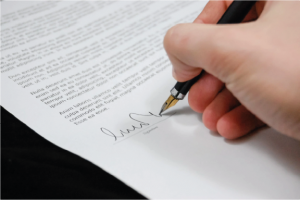In a world that is more connected than ever, the translation of Legal documents has become a necessity. Just a few possible scenarios where Legal Translation is needed:
- International Lawsuits
- Domestic Lawsuits where the parts don’t speak the same language
- The translation of evidence (for example audio or video recordings)
- eDiscovery processes where part of the documentation is in a different language
- International arbitration cases
With global trade and migration, Legal scenarios that used to be rare are now extremely normal. In this article, we will discuss some of the key aspects to consider when dealing with Legal Translations and give you advice on what you can do to help your translation team.
“Legalese” – Different in every country
 It is commonly known that Legal text has its own language, a language that it is said only lawyers can understand. Even though that is a bit of a humorous exaggeration, it is true that Legal text is written in a very particular way that is different from every other type of content.
It is commonly known that Legal text has its own language, a language that it is said only lawyers can understand. Even though that is a bit of a humorous exaggeration, it is true that Legal text is written in a very particular way that is different from every other type of content.
What is not so known is that the form and style of Legal text change from language to language. It is not enough to just translate the text; an accurate Legal translation must reflect the style used on the Legal texts that are written in the target language.
And this is true not only for different languages. There are strong differences in how Legal text is written in different countries that share the same language. When you compare, for example, Legal texts from Mexico and Argentina you can find differences in the grammatical constructions and in the expressions used.
Experts only: Key points and challenges of Legal Translations
For starters, the biggest obstacle to surmount is by far the differences between Legal systems. Every country has its  own set of laws and sometimes even the basis of the Legal system can be different. For example, there are Legal systems based on the Common Law (where previous judicial opinions are of primary importance, such as the US), systems based on Civil Law (where codified statutes predominate, such as France or Germany), mixed systems, etc.
own set of laws and sometimes even the basis of the Legal system can be different. For example, there are Legal systems based on the Common Law (where previous judicial opinions are of primary importance, such as the US), systems based on Civil Law (where codified statutes predominate, such as France or Germany), mixed systems, etc.
It is also very usual to find Legal terms that don’t necessarily have a direct translation because they don’t exist in the target country, and that require further explanation for the reader to understand them.
It is important that the translators have experience working with Legal content and are knowledgeable on the style and terms used in the target language and country. Translators need to adopt the writing style of local lawyers. This makes the text easier to read and understand which is what you must always aim for when translating.
Working with the right reference materials is key. Governments around the world usually have Legal Dictionaries online that are useful resources when looking to understand the meaning of a specific term.
In some jurisdictions, you will need to certify your translations in order to be admitted by the court. While this varies from country to country when this is a requirement you will need to receive a physical copy of the translation by mail, which must include the translator’s seal, signature, and license number.
Accuracy is key on Legal Translations. A missing period or a moved comma can change the meaning of a sentence. When hiring a Legal Translation Agency please make sure to ask them about how they ensure both accuracy and consistency across all your files. You can’t afford a mistake in a Legal process.
For this type of content receiving a translation performed by a single translator will not be enough. To ensure quality, it is important that the translation is reviewed by a second translator who is also specialized in Legal Translations. A fresh pair of professional eyes can detect errors or improvements that the initial translator might have missed.
Helping your Translation Team
You are a critical part of the translation process. Here is a shortlist of actions you can take on your end to help your translations go smoothly:
- Be available for questions: it is important that the translators understand 100% of the text before they translate it. Leaving things ambiguous can result in serious mistranslations.
- Whenever possible, make sure to send fully editable files: Non-editable files such as PDFs require either OCR or manual recreation, and with either process, you run the risk of introducing distortions in the text. Spending a bit of time looking for the original editable files usually pays off in cost, time, and accuracy.
- Reference Materials: please send all the reference materials you have available, including information about the plaintiff and defendant, about the lawsuit itself, and previous translations (if applicable). This helps the translators have a better understanding of the documents they are translating, which results in a better translation.
Closing words
A faulty translation can derail your Legal Process. Keep in mind how important it is to choose the right people for your Legal Translations, and what you need to double-check with them before trusting that team with your translation needs: They need to be Legal Experts (both in the source and in the target language), they need to be Accurate and they need to have a solid Quality Process.
We hope that the information in this article helps you in all your future Legal Translations.
At Australis Localization, we have a long track record of Legal Translations. We can also provide Sworn Translations for many Latin American countries. Do you need our help with your Legal content? Contact us at production@australis-localization.com

